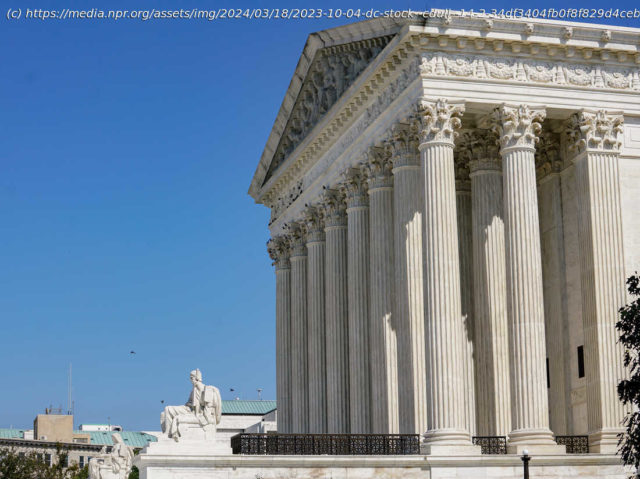At issue was a sweeping Fifth Circuit Court of Appeals decision that barred government officials from having contacts with social media platforms.
At the Supreme Court Monday, a majority of the justices seemed highly skeptical of claims that federal government officials may be broadly barred from contacts with social media platforms.
At issue was a sweeping Fifth Circuit Court of Appeals decision that barred White House officials, FBI officials, CDC and election experts, and officials from other agencies from having contacts with social media platforms. The appeals court decision is on hold pending a Supreme Court decision in the case later in the term, though the court’s three most conservative justices—Clarence Thomas, Samuel Alito, and Neil Gorsuch, would have allowed it to go into effect.
Five individuals and two Republican-dominated states—Louisiana and Missouri—claim that the government is violating the First Amendment by systematically pressuring social media companies to take down what the government sees as false and misleading information. The Biden administration counters that White House and agency officials are well within their rights to persuade social media companies about what they see as erroneous information about COVID-19, or foreign interference in an election, or even election information about where to vote.Government contact with media companies
Two justices who once worked in the White House—Brett Kavanaugh, a Trump appointee, and Elena Kagan, an Obama appointee—were the most outspoken about the long history of government contacts with media companies.
«I had … experienced government press people throughout the federal government who regularly call up the media and berate them,» said Kavanaugh, though it was unclear if he was the berating target or perpetrator.
Justice Kagan admitted to having dished out complaints.
«Like Justice Kavanaugh, I’ve had some experience encouraging press to suppress their own speech,» she said. «You just wrote a story that’s filled with factual errors. Here are the 10 reasons why you shouldn’t do that again. I mean, this happens literally thousands of times a day in the federal government.»
She and Justice Amy Coney Barrett postulated that the FBI might contact social media companies to tell them that, while they may not realize it, they have been posting information from a terrorist group aimed at covert recruitment.
Домой
United States
USA — mix Supreme Court seems wary of barring government contacts with social media






